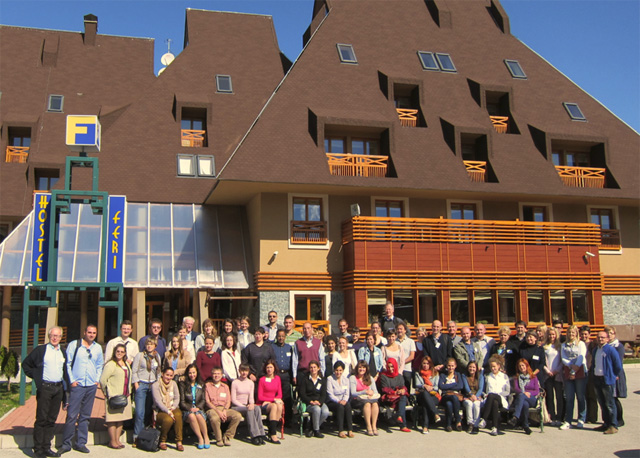in Sarajevo, Bosnia & Herzegovina
Course Organisers: Dr Hannes Stockinger, Vienna, Dr Moncef Zouali, Paris, Dr Hans-Joachim Seitz, Hamburg.
The primary aim of this summer school was to teach immunology to students and young investigators in immunology from South-East Europe. This region still needs help to establish a state-of-the-art immunology. Infrastructure and equipment in most of the institutes in the South of this region are underdeveloped, but immunological societies in these countries have been or are being formed. Another aim of the school was to foster contact of these young investigators with other immunological societies. They met foreign speakers both from nearby and more distant countries. The region also urgently needs a network of immunologists between East European countries.
We had 55 participants from 9 countries: Albania (6), Austria (1, originally from Sarajevo), Bosnia & Herzegovina (17), Croatia (6), Macedonia (2), Serbia (14), Romania (3) Bulgaria (5) and Ukraine (1). One participant from Kosovo had to cancel her participation due to visa problems. The participants were extremely motivated and grateful for this opportunity to meet foreign speakers. It was especially positive that the young immunologists coming from countries that had been at war only 20 years before could easily discuss science and even sing folk songs in the evening together. Due to the generous help of IUIS we could finance the entire costs for the students, i.e. accommodation, subsistence and travel.
For the location of the school, we had chosen a small hostel (Hostel Feri, www.feri.ba) in the Igman mountains, about 25 km from the center of Sarajevo. This remote place had the advantage that all participants were together with the faculty in one place and nobody could escape. There were no other guests in the hostel. The hostel is near the facilities of the 1984 olympic winter games that were destroyed in the civil war in the 90ies. In fact, the soot-blackened ruins of hotels and other buildings could be seen and some surrounding areas were still infested with land mines.
Lectures dealt with current concepts in Immunology, that are of special importance for basic but also for clinical immunology as many participants had a medical background. Plenary lectures were held in the morning. To provide an optimal discussion the participants formed small working groups in the afternoon according to their knowledge and interests that were guided by the speakers. Methodological aspects and new concepts were discussed in these working groups. Due to the support by Euroimmun, microscopes were provided for a training session in practical immune diagnostics. The faculty consisted of lecturers from Austria (H. Stockinger, G. Stanek), Bulgaria (A. Tchorbanov), Croatia (B. Polic), Finland (S. Meri), France (M. Zouali), Germany (B. Fleischer, A. Gospos, H.J. Seitz, H.W. Mittrucker), and India (NK Mehra). Presentation of the work of the young investigators themselves in a special poster session including a short oral plenary summary was an important part of the school and took place on one entire evening. The website of the school is accessible at www.bnitm.de/seeis2012.







